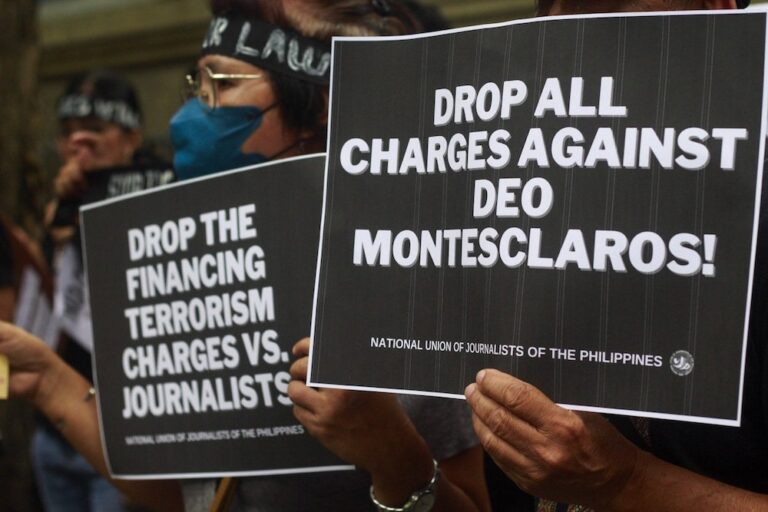Conflicts between public interest and the interests of the owners of the news media are almost inevitable, whether in the Philippines or in those other countries where private ownership is the dominant form of media ownership.
Conflicts between public interest – the public right to, and its stake in, unbiased and fair reporting as a critical factor in the formation of opinion and in decision-making – and the interests of the owners of the news media are almost inevitable, whether in the Philippines or in those other countries where private ownership is the dominant form of media ownership.
While the fundamental conflict of interest in those places where the news media are under State control is plainly between the interest of governments and those of the public, conflicts of interest in the Philippines and similar jurisdictions are more complex. They involve the interest of the public on the one hand, and on the other, the broad spectrum of interests of the companies, corporations, and conglomerates that own and control the news media.
In the Philippines, the owners of the news media have been involved in businesses as varied as telecommunications, shipping, food processing, fast food franchises, real estate, film production and importation, public utilities, port operations, hotels, shopping malls, and mining, among others. Uncontested is the common belief that control over a media organization endows the owner with the power to shape public opinion in behalf of defending and enhancing the interests implicit in the profitable conduct of business enterprises.
Both because of the variety of the interests involved as well as their public relevance, it is almost inevitable that these enterprises will be in the news at some point or another, and that a conflict could ensue between the individual journalists’ responsibility to accurately and fairly report, or comment on, in behalf of public interest, an event or issue involving his or her media organization’s owner’s business concerns.
Such concerns often have a political dimension. Since State policy has a bearing on how business is conducted and regulated, and can decide their profitability and even sustainability, the conflict assumes special relevance to the capacity of the public to compel the State to act or adopt certain policies. In those instances when public interest coincides with that of the media owner’s, no conflict ensues. What are problematic are those cases in which these interests are at odds.
Such conflicts when they occur have often been resolved in favor of owner interest, whether in terms of biased, incomplete, and/or one-sided reporting, if at all, or in the total absence of reporting. There are indications, however, that the imperatives of the ownership system are not as iron-clad as they would appear, and that it is possible for the conflict to be resolved in favor of public interest.
That outcome depends upon two factors. The first is the extent to which owners intervene in media operations. The second is the willingness and capacity of journalists to negotiate with editors, and of editors to negotiate with media owners.
Unless there is an immediate and urgent need for it, most of the owners of the news media have not the time to intervene in such editorial decisions as to what the next day’s headline will be, the choice of the topic for tomorrow’s editorial, and what photographs should appear on the front page as was the case with one of the leading Manila broadsheets, where, in furtherance of the policy to avoid controversy, taking a firm position on any public issue was studiously avoided.
Experience and anecdotal evidence suggest that this was an exceptional case. In most cases, owners intervene only rarely and leave the nitty-gritty of editorial decisions to the professionals.
It is in the latter media organizations where enough room exists for independent editorial judgment as the norm rather than the exception. Despite that space, however, resolving the conflict of interest between that of the public and that of the media owner whenever the latter interest becomes part of public discourse still depends on both the willingness and capacity of journalists and editors to negotiate with each other and with owners.
Some editors do assume for themselves what amounts to censorship tasks in furtherance of what they think is owner opinion. They raise, under the cloak of technical reasons – this story is late or too early, it’s not news, its emphasis is all wrong, etc. – arguments that favor owner interest, requiring that stories be rewritten accordingly, editing them to favor that interest, or even killing stories outright. It is with these editors that individual journalists need to negotiate on the basis of professional and ethical arguments, and in the hope that the editors concerned will in the process remember and observe the standards of the profession. Once convinced, however, it becomes the editors’ responsibility to convince the owner that in the long term, the media organization’s adherence to the established norms of journalism practice can only redound to the media organization’s credibility before the public it is supposed to serve.
Key to the outcomes of such negotiations is awareness among practitioners of the commonality of professional responsibility and interests among reporters, columnists, editors, and desk persons as heralds of information in behalf of public interest. That unity of purpose and the determination to realize it is the countervailing force to the undeniable power media ownership confers on those groups and individuals whose involvement in the media is dictated by the need to defend and advance interests different from, or even at odds with, those of the public.
By Luis V. Teodoro, a former dean of the University of the Philippines College of Mass Communication, where he teaches journalism. He is the deputy director of the Center for Media Freedom and Responsibility. He writes a weekly column for the Business World.


